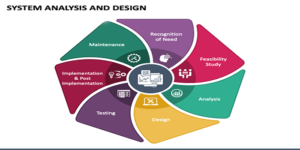
Cloud computing is a type of computing that involves delivering hosted services over the internet. These services are divided into three categories: Infrastructure–as–a–Service (IaaS), Platform–as–a–Service (PaaS) and Software–as–a–Service (SaaS). With cloud computing, users can access applications, store data and run programs over the Internet instead of on their local machines. Cloud computing is cost–effective and offers users the ability to scale their computing resources up or down as needed. It also eliminates the need for expensive hardware and provides users with access to a wide range of services. Cloud computing provides businesses with the opportunity to increase productivity, reduce costs and improve collaboration across their organization.
Cloud Computing Ttraining Course
This cloud computing training course provides an introduction to the core concepts of cloud computing, including an overview of cloud services, architectures, and deployment models. It covers the fundamentals of virtualization, cloud infrastructure, and security. By the end of the course, you will have a strong foundation in cloud computing and be prepared to use cloud services to improve business operations.
The course will cover topics such as cloud computing fundamentals, cloud architecture, cloud services and deployment models, virtualization, cloud security, and governance. You will also gain hands–on experience with Amazon Web Services (AWS), the leading cloud platform.
At the end of the course, you will have a comprehensive understanding of the core concepts of cloud computing, which will help you make informed decisions about how to use cloud services for your business. You will also have the skills to use AWS to manage your cloud infrastructure.
What are the Different Types of Cloud Computing Services?
1. Infrastructure as a Service (IaaS): This is the most basic and fundamental type of cloud computing service. It provides virtualized computing resources over the Internet, including servers, storage, networks, and operating systems.
2. Platform as a Service (PaaS): This type of cloud computing service provides a platform that allows developers to build, deploy, and manage applications without having to worry about the underlying infrastructure.
3. Software as a Service (SaaS): This type of cloud computing service is a complete software solution that is hosted and managed by the provider. End users access the software application over the Internet, usually through a web browser.
4. Serverless Computing: This type of cloud computing service is a form of IaaS that provides a platform for the development and deployment of applications without having to manage any underlying infrastructure.
5. Database as a Service (DBaaS): This type of cloud computing service provides a fully managed database solution, allowing users to quickly set up and manage databases in the cloud.
6. Network as a Service (NaaS): This type of cloud computing service provides virtualized networking services, such as load balancing and virtual private networks (VPNs).
7. Security as a Service (SECaaS): This type of cloud computing service provides cloud–based security solutions, such as identity and access management, data security, and threat protection.
Best University for Cloud Computing in India
1. Indraprastha Institute of Information Technology, Delhi (IIIT–Delhi)
2. International Institute of Information Technology, Hyderabad (IIIT–Hyderabad)
3. University of Petroleum and Energy Studies (UPES), Dehradun
4. Birla Institute of Technology and Science (BITS), Pilani
5. Amity University, Noida
6. SRM Institute of Science and Technology, Chennai
7. Vellore Institute of Technology (VIT), Vellore
8. Amrita Vishwa Vidyapeetham, Coimbatore
9. Jain University, Bangalore
10. Manipal Academy of Higher Education, Manipal
What is the Subject for Cloud Computing
Cloud computing is the practice of using a network of remote servers hosted on the Internet to store, manage, and process data, rather than a local server or a personal computer.
Benefits of Cloud Computing
1. Cost Savings: Cloud computing eliminates the capital expense of buying hardware and software and setting up and running on–site datacenters—the racks of servers, the round–the–clock electricity for power and cooling, the IT experts for managing the infrastructure.
2. Automated Software Updates: Many cloud computing services automatically patch and update the software so that it is always up to date with the latest security fixes and features.
3. Increased Collaboration: Cloud computing services make it easier for people to collaborate no matter where they are located.
4. Increased Storage: Cloud storage can provide virtually unlimited storage capacity.
5. Improved Backup and Recovery: Cloud computing makes it easy to backup and recover data in the event of a disaster.
6. Accessibility: Cloud computing allows users to access data and applications from anywhere over the Internet, using any device.
7. Scalability and Elasticity: Cloud computing services are scalable, which means users can scale up or down depending on their needs. This allows organizations to manage their resources more efficiently.
8. Security: Cloud computing providers offer a variety of security measures such as encryption, authentication and authorization to protect data.






